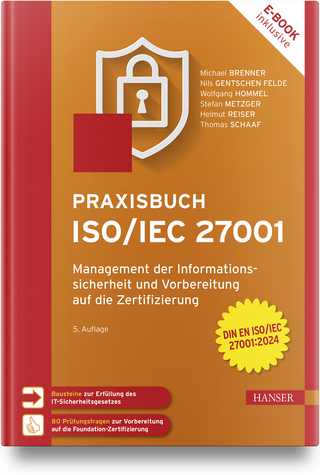
Regulating Access and Transfer of Data
Seiten
2023
Cambridge University Press (Verlag)
978-1-009-33516-4 (ISBN)
Cambridge University Press (Verlag)
978-1-009-33516-4 (ISBN)
Data collected and distributed on the internet is generally free, non-exclusive and non-rivalrous. Yet online data is often difficult to access. This book examines the infrastructure for collecting, storing, and distributing data to show how it is embedded behind intellectual property and protected technology barriers.
Data collected and distributed on the internet is generally free, non-exclusive, and non-rivalrous. Yet online data is often difficult to access. This book examines the infrastructure for collecting, storing, and distributing data to show how it is embedded behind intellectual property and technological barriers. It proposes that the EU introduce an access and transfer governance right to data that can work in tandem with data protection rules. Chapters explore the subject matter of this protection, potential rights holders and the scope of the protection, and exceptions and limitations under intellectual property law and competition law. Comprehensive and timely, Regulating Access and Transfer of Data sets the foundations for a new legal system for our data-driven generation.
Data collected and distributed on the internet is generally free, non-exclusive, and non-rivalrous. Yet online data is often difficult to access. This book examines the infrastructure for collecting, storing, and distributing data to show how it is embedded behind intellectual property and technological barriers. It proposes that the EU introduce an access and transfer governance right to data that can work in tandem with data protection rules. Chapters explore the subject matter of this protection, potential rights holders and the scope of the protection, and exceptions and limitations under intellectual property law and competition law. Comprehensive and timely, Regulating Access and Transfer of Data sets the foundations for a new legal system for our data-driven generation.
Björn Lundqvist is the Head of the EU Law Research Group and Director of the European Law Institute at the Stockholm University, and Director of Ascola for the Nordic region.
1. Introduction; 2. The data-driven economy; 3. Competition law; 4. General and sector-specific regulations; 5. The objectives of regulating the data-driven economy; 6. The intellectual property law system and data; 7. An access and transfer right to data; 8. Conclusion.
| Erscheinungsdatum | 03.04.2023 |
|---|---|
| Reihe/Serie | Global Competition Law and Economics Policy |
| Zusatzinfo | Worked examples or Exercises |
| Verlagsort | Cambridge |
| Sprache | englisch |
| Maße | 158 x 235 mm |
| Gewicht | 540 g |
| Themenwelt | Informatik ► Netzwerke ► Sicherheit / Firewall |
| Recht / Steuern ► EU / Internationales Recht | |
| Recht / Steuern ► Wirtschaftsrecht ► Urheberrecht | |
| Recht / Steuern ► Wirtschaftsrecht ► Wettbewerbsrecht | |
| ISBN-10 | 1-009-33516-2 / 1009335162 |
| ISBN-13 | 978-1-009-33516-4 / 9781009335164 |
| Zustand | Neuware |
| Haben Sie eine Frage zum Produkt? |
Mehr entdecken
aus dem Bereich
aus dem Bereich
Das Lehrbuch für Konzepte, Prinzipien, Mechanismen, Architekturen und …
Buch | Softcover (2022)
Springer Vieweg (Verlag)
CHF 48,95
Management der Informationssicherheit und Vorbereitung auf die …
Buch (2024)
Carl Hanser (Verlag)
CHF 97,95


